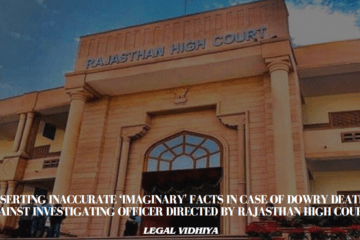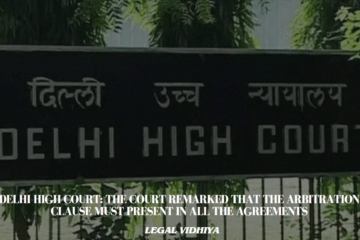
Keywords: – NCDRC, Patient, Compensation, Humanitarian, State Commission
In a recent medical negligence case heard by the National Consumer Disputes Redressal Commission (NCDRC), the accused hospital displayed a heartwarming gesture by deciding to pay ₹7 lakh to the family of the deceased patient on humanitarian grounds, even though they had emerged as winners in the case (Philips Thomas v Deen Hospital).
The State Dispute Redressal Commission had granted ₹7 lakh as compensation to the patient’s family, finding the hospital and doctors at fault for the patient’s demise. However, NCDRC Presiding Officer Dr. SM Kanitkar overturned this decision. Nonetheless, the hospital still expressed its readiness to pay the already deposited ₹7 lakh to the State Commission. The NCDRC accepted this agreement but emphasized that it should not be regarded as a precedent.
“The learned Counsel for OPs on instructions from OP-1 made submissions that, on humanitarian grounds, the OP-1 on his own volition wishes to pay the amount of ₹7 lakh which has already been deposited in the State Commission. Therefore, the Registrar of the State Commission is directed to release Rs.7 lakhs along with the accrued interest to the Complainants within six weeks from today. It is made clear that, in any manner this shall not be construed as a precedent,” the order noted.
Significantly, the NCDRC’s ruling emphasized that not every patient death can be immediately attributed to medical negligence unless there is supporting evidence on record to substantiate such a claim.
“It is pertinent to note that in the instant case after the surgery the doctors in the operation theatre have effectively managed the complications and done resuscitation,” said the NCDRC while setting aside the State Commission’s order.
The case involved the unfortunate death of a 37-year-old patient who underwent laparoscopic sterilization surgery. As per the complainant, the cause of death indicated that both general anesthesia and spinal anesthesia were administered to the patient simultaneously. The complainant contended that the surgery was conducted in a casual manner and raised concerns about the doctor’s qualifications to administer anesthesia since they were not an anesthetist. Conversely, the doctors argued that they provided attentive care to the patient, promptly transferring them to a higher-level medical facility, and making decisions in the best interest of the patient. The Commission determined that the doctor possessed the necessary competence to administer anesthesia for minor procedures.
“Had experience in the field of anesthesia over 25 years. The Travancore Kochi Medical Council allows doctor with MBBS to administer anesthesia. In my view, she was competent to administer anesthesia for minor procedures,” said the NCDRC.
In its decision, the NCDRC made a reference to the landmark case of Jacob Mathew v State of Punjab, in which the Supreme Court had established the criteria for determining medical negligence. The NCDRC highlighted that not every case of unsuccessful treatment or patient death during surgery should be automatically attributed to medical professionals being negligent.
With this, the appeal against the State Commission’s order was allowed.
However, on humanitarian grounds, the hospital requested that the amount of ₹7 lakh already deposited with the State Commission be released to the complainant.
The complainants were represented by advocates Saju Jakob, Arush Gangal, and Tessy Varghese.
Deen Hospital was represented by advocates Raghenth Basant and Ajay Krishna.
Written by- Mubashara Fatima, College name- Unity PG and Law College, Semester- 6th, intern under Legal Vidhiya





0 Comments